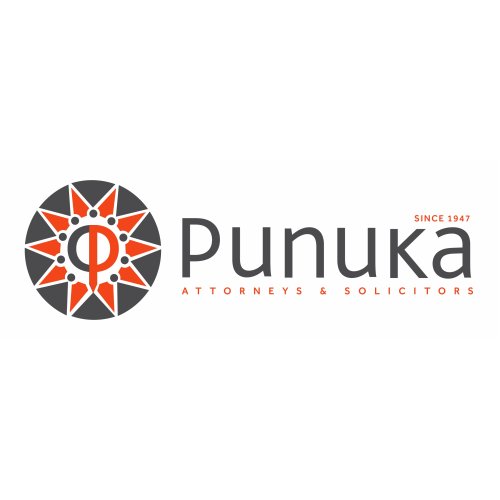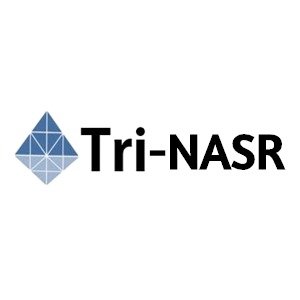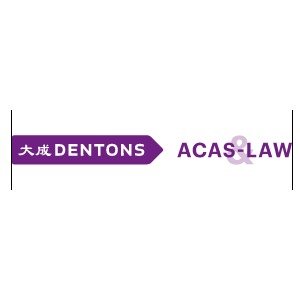Best Media, Technology and Telecoms Lawyers in Abuja
Share your needs with us, get contacted by law firms.
Free. Takes 2 min.
List of the best lawyers in Abuja, Nigeria
Nigeria Media, Technology and Telecoms Legal Articles
Browse our 1 legal article about Media, Technology and Telecoms in Nigeria written by expert lawyers.
- Telecommunication Services in Nigeria: The Available Legal Rights and Remedies to Customers (Subscribers)
- Telecommunications services are essential to modern society, which facilitates global communication, business, and connectivity. In recent years, Nigeria's telecommunications business has developed and expanded greatly, owing to technology breakthroughs and regulatory reforms. However, in addition to these advancements, consumers frequently face issues such as network congestion, call dropouts, and insufficient... Read more →
About Media, Technology and Telecoms Law in Abuja, Nigeria
Media, Technology, and Telecommunications law in Abuja, Nigeria revolves around the regulation and governance of the media industry, technology companies, and telecommunication providers. As Nigeria continues to expand its digital footprint, there is increasing involvement in these sectors. Abuja, as the capital city, serves a central role in both political and technological advancements within the country. Legal frameworks governing these industries are set to ensure fair competition, consumer protection, and data privacy, adapting to the fast-paced changes in technology to maintain a balanced and equitable digital environment.
Why You May Need a Lawyer
There are several situations in which individuals and businesses may require legal guidance in the realm of Media, Technology, and Telecoms in Abuja:
- Contract Negotiation: For businesses entering agreements with service providers or technology companies.
- Intellectual Property: Protecting or litigating copyrights, patents, and trademarks related to media content or technological innovations.
- Regulatory Compliance: Adhering to local, national, and international regulations on data protection, broadcasting, and telecommunications.
- Dispute Resolution: Resolving disagreements between consumers and service providers or among businesses within the industry.
- Privacy Concerns: Ensuring compliance with data protection laws and handling breaches or misuse of personal data.
Local Laws Overview
In Abuja, the following are some key legislative frameworks impacting the Media, Technology, and Telecoms sectors:
- National Information Technology Development Agency (NITDA) Act: Sets guidelines for the regulation and promotion of information technology.
- Nigerian Communications Act: Governs all telecommunications services and facilitates competition and consumer protection.
- Cybercrimes Act: Deals with offenses related to internet use and cybercrime prevention and prosecution.
- Freedom of Information Act: Provides public access to certain government information, impacting media operations.
- Digital Rights and Freedom Bill: Focuses on protecting digital rights and fostering internet freedoms alongside existing internet laws.
Frequently Asked Questions
What is the role of the Nigerian Communications Commission (NCC)?
The NCC is the regulatory authority for the telecom industry in Nigeria, ensuring compliance, promoting fair competition, and protecting consumer interests.
Can I patent an app developed in Abuja?
Yes, apps and software can be patented if they meet patent eligibility criteria, including novelty, inventiveness, and industrial applicability.
What should I do if I experience a data breach?
Notify the affected individuals, report to the NITDA as it's mandated by the law, and rectify vulnerabilities to prevent future breaches.
Are there specific laws governing broadcasting in Abuja?
Yes, the Nigerian Broadcasting Commission (NBC) has stringent regulations covering content, licensing, advertising, and operational standards for broadcasters.
How can I protect my digital content?
Through copyright registration, licensing agreements, digital rights management (DRM) technologies, and consistent monitoring for infringement.
Is it legal to record phone conversations in Abuja?
Nigeria's privacy laws generally require the consent of at least one party involved in the conversation for recording to be lawful.
What are the penalties for cybercrime in Nigeria?
The Cybercrimes Act prescribes various penalties, including fines and imprisonment, depending on the severity and nature of the offense.
Do online businesses need special licenses in Nigeria?
While general business permits suffice, certain activities may require additional licenses, like e-commerce or fintech services, which are regulated under specific laws.
What is the process for filing a telecommunications complaint?
Consumers can file complaints directly with their service provider and escalate unresolved issues to the NCC for mediation.
How does the Freedom of Information Act affect journalists?
It empowers journalists to access government-held information, fostering transparency and accountability while respecting privacy and national security concerns.
Additional Resources
For anyone seeking legal advice or information in Media, Technology, and Telecoms in Abuja, the following resources can be beneficial:
- Nigerian Bar Association (NBA): Provides a directory of qualified legal practitioners across various specialties.
- National Information Technology Development Agency (NITDA): Offers resources and guidelines on data protection and IT governance.
- Nigerian Communications Commission (NCC): Regulatory authority offering insights into telecommunications policies and consumer rights.
- Cybercrime Advisory Unit - Ministry of Justice: Provides support and information for cybercrime victims and legal procedures.
- Nigerian Copyright Commission (NCC): Protects creative works and intellectual property across media platforms.
Next Steps
If you need legal assistance revolving around Media, Technology, and Telecoms in Abuja, consider the following steps:
- Identify Your Needs: Clearly define your issue or requirement to determine the specific legal expertise you need.
- Consult a Specialist: Engage with a lawyer specializing in Media, Technology, and Telecoms to get tailored advice.
- Gather Documentation: Prepare all relevant documents and evidence to facilitate a thorough consultation process.
- Follow Legal Advice: Act on the advice given by your legal counsel to ensure compliance and protection of your rights.
- Stay Informed: Keep abreast of changes in laws and regulations affecting your matter for proactive legal management.
Lawzana helps you find the best lawyers and law firms in Abuja through a curated and pre-screened list of qualified legal professionals. Our platform offers rankings and detailed profiles of attorneys and law firms, allowing you to compare based on practice areas, including Media, Technology and Telecoms, experience, and client feedback.
Each profile includes a description of the firm's areas of practice, client reviews, team members and partners, year of establishment, spoken languages, office locations, contact information, social media presence, and any published articles or resources. Most firms on our platform speak English and are experienced in both local and international legal matters.
Get a quote from top-rated law firms in Abuja, Nigeria — quickly, securely, and without unnecessary hassle.
Disclaimer:
The information provided on this page is for general informational purposes only and does not constitute legal advice. While we strive to ensure the accuracy and relevance of the content, legal information may change over time, and interpretations of the law can vary. You should always consult with a qualified legal professional for advice specific to your situation.
We disclaim all liability for actions taken or not taken based on the content of this page. If you believe any information is incorrect or outdated, please contact us, and we will review and update it where appropriate.
Browse media, technology and telecoms law firms by service in Abuja, Nigeria
Abuja, Nigeria Attorneys in related practice areas.

















